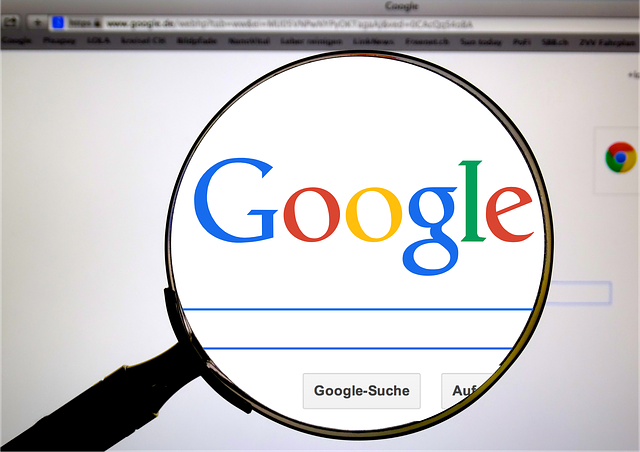
How Search Engines Revolutionize Business?
27 November 2017
By limenotlemon
Search Engines
Search engines have clearly changed how we do our job. Back in the 90s, we used phonebooks as the go-to source to find a local business or service. Now, we only need to type certain keywords on a search engine, and within seconds, we will receive thousands of search results. As the most dependable search engine, Google has now become synonymous with the concept of “search” within the last decade. It’s not impossible if, shortly, the term Google will replace the word “search” entirely.

Regardless, search engines have emerged as the first guidance for people when they think of some information they need about a certain topic, product, or service. People often just stop at the first page of Google when they think they already got what they need. Your business might be left behind if you’re unable to be on the first page of Google. No matter who you are or what your business does, you need to know how search engines work to experience it yourself how it benefits your business.
Search Engine Marketing
Search engines are also the best marketing media for your business; thus, search engine marketing arises. Search engine marketing is the practice of marketing business by implementing paid advertisements, or pay-per-click ads, that appear on search engine result pages. Advertisers will bid on certain keywords that Google or Bing users might enter when looking for products or services. It gives the advertisers an opportunity for their ads to appear alongside the search results.
What makes search engine marketing great is that it offers an opportunity for advertisers to get their ads to appear on the front page of search engines, particularly to motivated buyers who are ready to make purchases at the precise moment. So, when you think of it, search engine marketing can be the most effective way to promote your business and increase visitors’ conversion rate.

What’s the difference between search engine marketing and search engine optimization?
You might think SEM and SEO are the same practice since they involve search engines and keywords. However, the terms are quite different, especially when we talk about these practices for business. Search engine marketing basically requires advertisers or businesses to pay to get their ads shown in the search results. Meanwhile, search engine optimization doesn’t require a dime; rather, it provides a free spot for business search results by having the most relevant content for specified keywords entered on the search field.

Here are several aspects that will affect your rank on search engines, particularly Google:
- Online time duration. New websites often find a hard time with SEO since Google favors sites with a good history rather than newer brands.
- Keywords. You need to know which words and phrases your markets use on your market. You can find out more about them with keyword research. Include the keywords in your page title, site, meta tags, and content to help search engines know what the page is about. However, keep in mind that you can’t just overuse the keywords because it might assume you’re trying to cheat the system.
- Outgoing links. Search engines often look for links to other sites and within your site, for example linking to other content on your own site.
- Incoming links. Social media are an example of incoming links. Search engines will rate your website’s reputation by the company you keep; that’s why you need to have quality outgoing and incoming links.
- Responsive web design. In the age of mobile, it’s important to have your website accessible for any device. Google has now included mobile-friendly as one of the aspects that determines a website’s rank.
Search engine marketing and search engine optimization both play an important role in your online marketing strategy. SEO is a powerful tool to boost your website traffic, while SEM is a highly cost-effective way to promote your business directly to potential buyers.
Why is search engine marketing a fundamental part of your online marketing plan?
In today’s business climate, all kinds of businesses are expected to provide a website to reach out to their customers. Search engine marketing can help deliver traffic to your website, which can also turn into sales, new customers, and revenues for the home business. If you compare it to other marketing means, search engine marketing is considerably more cost-effective. While SEO strategy costs nothing, pay-per-click ads can also be relatively inexpensive as long as you do it right. The thing is, you can set limits on how much you’ll pay per click and how much you pay per day, which of course, provides you the freedom to control your operational expense.

Measuring how effective search engines as an online marketing strategy
Search engine marketing is a great investment for your online marketing strategy. However, it may have to take considerable time to boost traffic and conversions. Worry not; it will certainly be worth it. The effectiveness of search engine marketing depends on what your objectives are.
If your purpose is to increase the number of visitors to your website, you can compare your web traffic statistics before and after applying search engine marketing. But, if you intend to boost revenue and conversion rate, you may have to apply some additional marketing techniques that will interest your targeted buyers.
How to track your conversion rates? You can measure how search engine marketing boosts your business conversion rate by measuring how many new customers you acquired after your traffic was improved. For example, do you get twice as many customers as you did before?
Find ways to increase the traffic to your website and increase the conversion rate of those visitors. Once you know how to succeed in those, you’ll know what it takes to make your search engine marketing plan successful.
Both paid search and SEO can boost overall SEM performance. According to the creator of Google’s Webmaster Central, Vanessa Fox, studies that prove click-through rates, conversion rates, and revenue are higher when a business implements both organic and paid listings to appear in search engines. While many small businesses assume they only need to scale back investment in paid search once SEO efforts achieve top organic placement, a business that leverages both techniques can take advantage more significantly.
